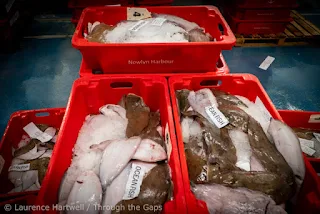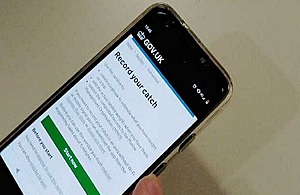This summary compiles the key points made by each speaker in the Westminster Hall debate. The session addressed various challenges faced by the fishing industry, including Brexit’s impact, labor shortages, quota management, renewable energy conflicts, and the need for sustainability and mental health support. Generated by AI.
The full text from Hansard can be read here.
Clive Efford (Chair):
- Chaired the session, emphasised procedural expectations for attendance and participation.
Mr. Alistair Carmichael (Orkney and Shetland) (LD):
- Highlighted risks and sacrifices made by fishers.
- Focused on UK-EU-Norway negotiations, Trade and Cooperation Agreement (TCA), access to fishing grounds, and labor shortages.
- Criticised the annual negotiations model, advocating for multi-annual agreements.
- Addressed inadequacies in fisheries science funding and data deficiencies.
- Critiqued the post-Brexit TCA, emphasising quotas favouring the EU.
- Discussed the "spatial squeeze" from offshore wind projects.
- Urged reforms in visa policy to address labor shortages and more pragmatic language requirements.
Jim Shannon (Strangford) (DUP):
- Applauded Carmichael’s work and stressed labor shortages.
- Suggested minor tweaks to Home Office policy could benefit fishing communities.
Andrew George (St Ives) (LD):
- Supported multi-annual quotas and ICES science for stable management policies.
- Criticised unfulfilled promises to fishermen during Brexit.
- Highlighted offshore wind challenges and the need for collaboration.
- Discussed the impact of quota cuts on local fishermen.
Wendy Chamberlain (North East Fife) (LD):
- Emphasised promoting fishing as a career, citing local efforts like the Scottish Fisheries Museum.
Seamus Logan (Aberdeenshire North and Moray East) (SNP):
- Called for a ministerial visit to discuss visa challenges and labor shortages.
Melanie Onn (Great Grimsby and Cleethorpes) (Lab):
- Expressed concerns over reducing English language standards for visas.
- Mentioned ecological benefits of offshore wind farms like increased crab populations.
Anna Gelderd (South East Cornwall) (Lab):
- Highlighted the importance of small-scale fishing in Cornwall’s heritage.
- Praised organizations supporting fishers and advocated for sustainable practices.
- Urged collaboration to ensure a just and sustainable future for the fishing industry.
Harriet Cross (Gordon and Buchan) (Con):
- Emphasised Scotland’s fishing industry’s critical role for food security.
- Raised concerns over spatial squeeze from renewable energy projects.
- Urged review of TCA to prioritize UK fishers.
Lorraine Beavers (Blackpool North and Fleetwood) (Lab):
- Discussed the decline of Fleetwood’s fishing industry and the need for proper negotiations to reverse economic decline.
Jayne Kirkham (Truro and Falmouth) (Lab/Co-op):
- Highlighted Cornwall’s dependence on fishing for jobs and culture.
- Criticised Brexit’s impact on fishing, especially shellfish exports.
- Advocated for a balanced approach to renewable energy and fishing.
John Cooper (Dumfries and Galloway) (Con):
- Defended fishermen as custodians of the sea and criticised Scottish Government policies.
- Discussed Brexit opportunities for the fishing industry.
- Warned about spatial challenges from offshore wind and marine protected areas.
- Emphasised the importance of TCA renegotiations.
Seamus Logan:
- Suggested the need for TCA negotiator visits to Scotland for industry input.
Melanie Onn:
- Emphasised the importance of involving the fishing industry early in renewable energy consultations.
Andrew George:
- Countered suggestions of industry resistance to conservation, citing self-proposed conservation efforts.
Torcuil Crichton (Na h-Eileanan an Iar) (Lab):
- Praised fishermen's resilience, reflecting on past tragedies.
- Discussed Western Isles fishing, labor shortages, and quota management.
- Advocated for community quota systems and relaxation of restrictions on certain fisheries.
Caroline Voaden (South Devon) (LD):
- Emphasised fishing’s cultural and economic importance.
- Criticised the Brexit deal’s impact on fishers, advocating for transparent, science-based negotiations.
- Proposed streamlined processes, infrastructure investment, and visa reforms.
- Advocated for balanced marine spatial planning and environmental sustainability.
Dr. Neil Hudson (Dr Neil Hudson (Epping Forest) (Con)):
- Emphasised fishing’s importance to coastal communities and celebrated increased UK quotas post-Brexit.
- Criticised potential EU negotiation tactics.
- Advocated for stricter bycatch regulations and marine mammal protections.
- Focused on mental health issues in the fishing community.
Daniel Zeichner (he Minister for Food Security and Rural Affairs (Daniel Zeichner)):
- Acknowledged the challenges facing the fishing industry.
- Emphasised the government’s commitment to sustainability and economic viability.
- Stressed the need for collaborative policymaking and stakeholder involvement.
- Addressed concerns raised by Hudson, including safety, bycatch, and mental health.
- Reaffirmed opposition to whaling and commitment to marine ecosystem protection.
































